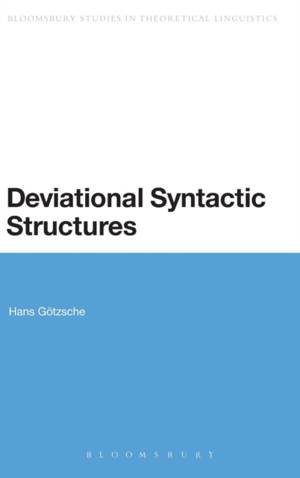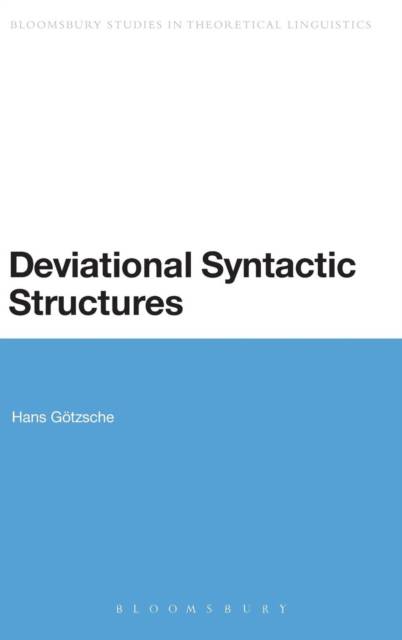
- Afhalen na 1 uur in een winkel met voorraad
- Gratis thuislevering in België vanaf € 30
- Ruim aanbod met 7 miljoen producten
- Afhalen na 1 uur in een winkel met voorraad
- Gratis thuislevering in België vanaf € 30
- Ruim aanbod met 7 miljoen producten
Zoeken
Omschrijving
Taking as a point of departure ideas and principles from the 18th and 19th century Danish tradition, and from 20th century traditions of the Copenhagen School of linguistics, this book attempts to set up a formal theory of syntax that addresses some of the weak points of other formal grammars, notably Chomskyan grammar.
After introductions to the ideas of Brøndal, Hjelmslev and Diderichsen, Götzsche lays the philosophical and theoretical foundations of his formalism, based on a theory of universal pragmatics and on the invention of a special kind of formal logic called 'occurrence logic', and elaborates this formal system in detail. In order to justify the adequacy of the theory, the theoretical apparatus is applied to the general structures of Danish and Swedish and illustrated by linguistic material from these languages. Furthermore, the ambition is to propose solutions to traditional problems concerning more inferior grammatical categories like prepositions, infinitive markers and particles. The concluding chapter of the book presents some ideas about how the formal system can be transformed into a model of the cognitive mechanism that handles syntax.
This book will be of interest to linguists, philosophers and scholars in theoretical linguistics and in Modern Languages.
After introductions to the ideas of Brøndal, Hjelmslev and Diderichsen, Götzsche lays the philosophical and theoretical foundations of his formalism, based on a theory of universal pragmatics and on the invention of a special kind of formal logic called 'occurrence logic', and elaborates this formal system in detail. In order to justify the adequacy of the theory, the theoretical apparatus is applied to the general structures of Danish and Swedish and illustrated by linguistic material from these languages. Furthermore, the ambition is to propose solutions to traditional problems concerning more inferior grammatical categories like prepositions, infinitive markers and particles. The concluding chapter of the book presents some ideas about how the formal system can be transformed into a model of the cognitive mechanism that handles syntax.
This book will be of interest to linguists, philosophers and scholars in theoretical linguistics and in Modern Languages.
Specificaties
Betrokkenen
- Auteur(s):
- Uitgeverij:
Inhoud
- Aantal bladzijden:
- 256
- Taal:
- Engels
- Reeks:
Eigenschappen
- Productcode (EAN):
- 9780826457387
- Verschijningsdatum:
- 23/05/2013
- Uitvoering:
- Hardcover
- Formaat:
- Genaaid
- Afmetingen:
- 157 mm x 241 mm
- Gewicht:
- 476 g

Alleen bij Standaard Boekhandel
+ 746 punten op je klantenkaart van Standaard Boekhandel
Beoordelingen
We publiceren alleen reviews die voldoen aan de voorwaarden voor reviews. Bekijk onze voorwaarden voor reviews.







